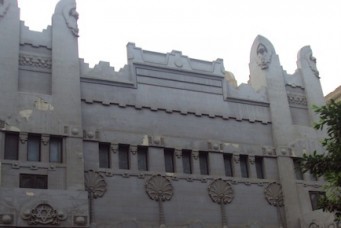Fighting Censorship
Most Egyptians hailed Egypt’s first democratic elections after decades of authoritarian rule. Yet, many artists, filmmakers, actors, writers, and musicians are not pleased that the vote tallies gave Islamists a majority in parliament (its lower house since dissolved by a Supreme Constitutional Court verdict based on a technicality), and more recently the presidency.
In January, film producer Mohammed El-Adl co-founded the Egyptian Creativity Front with the aim of fighting anticipated restrictions in the name of religion. “We want to protect the artist’s right to create, as well as the audience’s right to receive creativity,” says El-Adl. “We cannot protect creativity alone. The audience must also help us.”
After the announcement of legislative election results in January, the Egyptian Creativity Front marched from the Cairo Opera House to the People’s Assembly demanding that the new parliament respect freedom of expression. “There is no civilization without freedom!” read one of the banners. Another said: “Listen to the demands of the revolution!” Among the marchers was Khaled Youssef, a leading director of cinéma vérité films that expose Egypt’s seamy underside and a prominent critic of the Muslim Brotherhood and the conservative Salafi movement. The front has organized rallies and legal support for Adel Imam, a leading comic film star recently charged with insulting Islam through his acting roles. The Islamist lawyer who brought the charges also accused several prominent directors of insulting “the heavenly religion” and “men of religion.”
El-Adl says that one of the group’s goals is to abolish official censorship, which hindered artists during the reigns of Egypt’s secular rulers as well. “Ultimately, we could always get around political censorship through symbols and metaphors,” he says. “Religious censorship is harder to escape from.”
El-Adl is confident, though, that Egyptians will protect their unique heritage. “No one will be able to reverse this country’s rich history of creativity and culture,” says El-Adl. “We are not afraid.”


